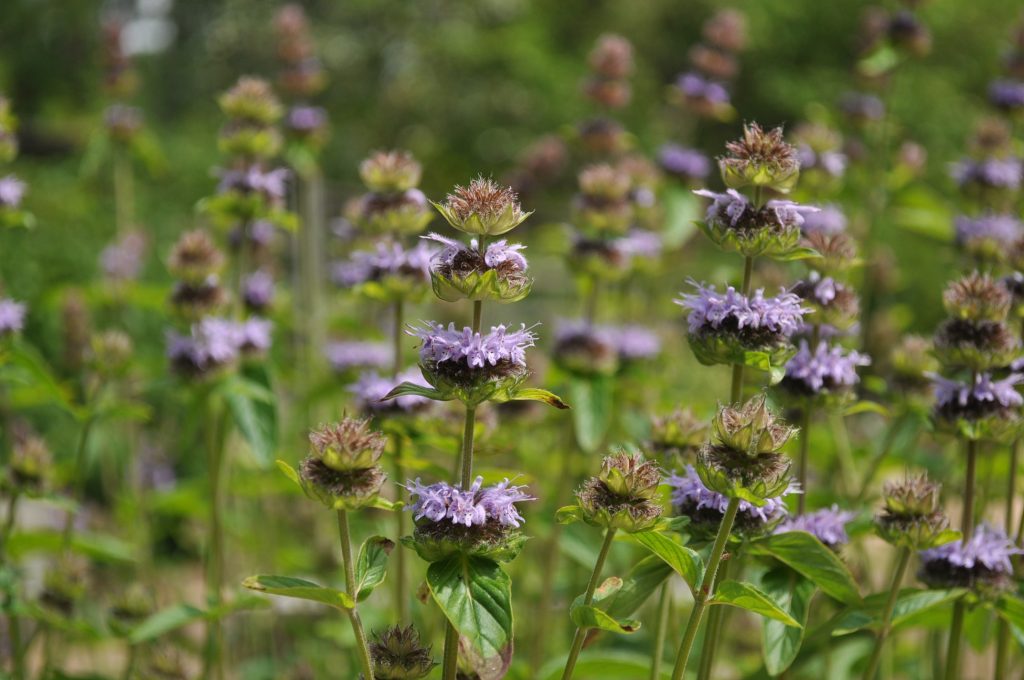downy woodmint
Blephilia ciliata
We are excited to share downy woodmint (Blephilia ciliata), a lovely native perennial in the mint family, as the 2022 Wildflower of the Year. Similar in appearance to its mint family relatives like bee balms (Monarda spp.), downy woodmint is a clump-forming perennial up to two feet tall, but it spreads slowly and won’t become aggressive like other mint species sometimes do. In late spring through mid-summer, its upright, unbranched square stems explode with tight clusters of tiny, two-lipped lavender flowers with dark purple spots. These flower clusters are stacked along the stem in tiered globular bunches, each resting atop a whorl of leafy bracts. This interesting floral arrangement is reminiscent of the roof of a pagoda, which is why this species is also sometimes called downy pagoda-plant or pagoda horsemint. Equally as interesting as the flower clusters are the brown, spherical seed heads which ripen in mid- to late-summer, persist through the winter, and make interesting additions to cut flower arrangements.
Although not as pungent as other mints, the leaves of downy woodmint are still mildly fragrant and can be chewed fresh or used to make herbal teas. It has been reported that a poultice of the leaves was used by the Cherokee to treat headaches and sinus congestion.
Downy woodmint is found throughout most of eastern North America in dry, open woodlands, meadows, glades, and prairies and usually grows in thin, nearly neutral (pH near 7.0) soils over limestone or diabase rock. In the garden, it will thrive in average to dry, well-drained soils in full to part sun, and it also does well if planted in a large container with sufficient drainage. The attractive clump of basal leaves at the bottom of the stem will remain green throughout the winter and over time can form a nice groundcover. Drought tolerant and somewhat deer and rabbit resistant, downy woodmint is also a great pollinator plant and is commonly visited by numerous species of native bees and butterflies. Plant this wonderful native mint with other pollinator species such as Coreopsis tripteris, Asclepias tuberosa, Solidago nemoralis, Phlox pilosa, and Pycnanthemum tenuifolium to make your garden a pollinator haven!
To receive a free packet of downy woodmint seeds, please send a self-addressed, stamped envelope to:
North Carolina Botanical Garden
UNC–Chapel Hill
attn: NCWFOY 2022
CB 3375
Chapel Hill, NC 27599-3375
